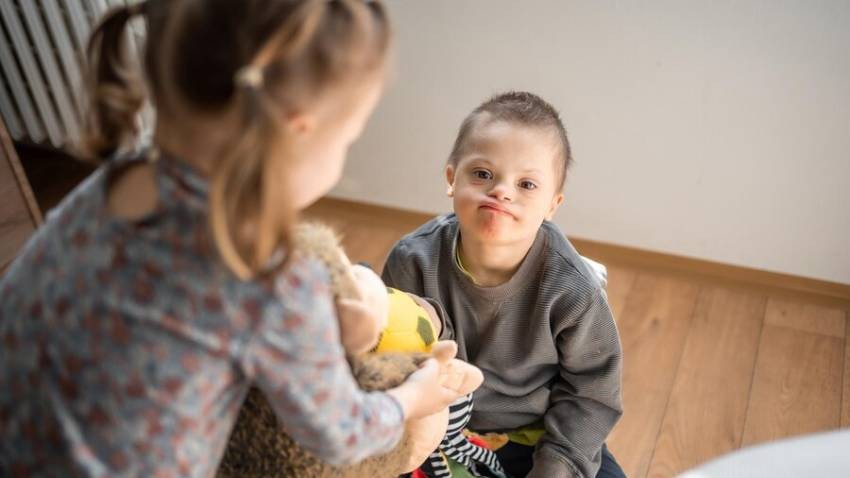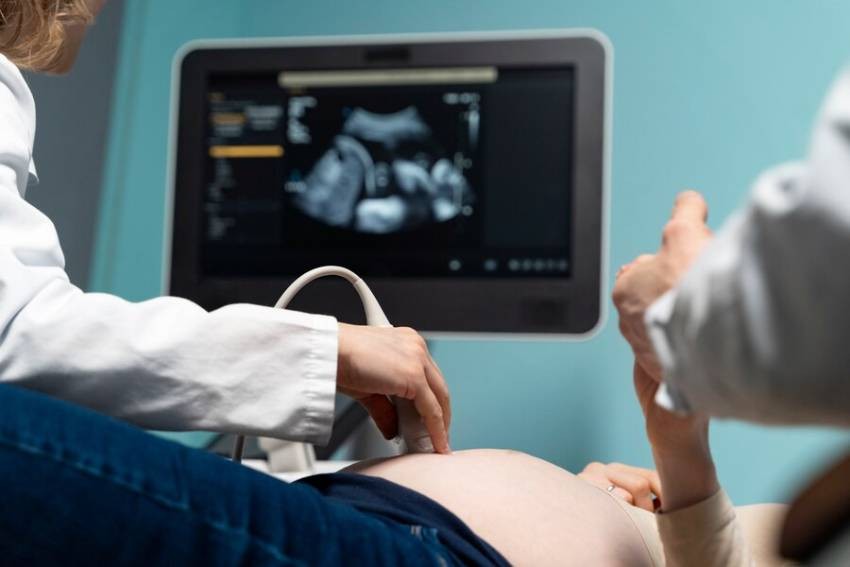Share Your Colours! This is the motto of International Rare Disease Day, marked once every four years - and there is a reason why this is so. Because the people with rare diseases remain invisible for a long time – undiagnosed, shut out of the world, alone with their disease. On 29 February they share their colours, with each adding a different shade of colour to the rainbow of empathy, sharing and hope.
According to the European standard, rare diseases are the diseases affecting less than 1 per 2,000 people. It is thought that there are over such 400,000 people in this country. In 80% of the cases the disease is genetic, and the remainder are the result of infections, allergies, environmental factors. Because they are insufficiently studied, it is very difficult to diagnose rare diseases, and only 5% are subject to treatment. 
Katerina Tsvetkova is the mother of 9-year old Bozhidar who has Dravet syndrome – one of the most severe forms of epilepsy which is resistant to treatment by medication. The child had his first seizure when he was 4 months old while he had chickenpox.
“My son was only diagnosed four years after he was born,” she says.
To keep her son in the best condition possible, the mother is forced to smuggle into the country, as she puts it, medicines which have not been approved in Bulgaria and hence are not available at pharmacies. “I get a prescription and I send it to a friend in Germany, and she buys it for me. Neurologists in this country know very well there are medicines that are sold abroad using Bulgarian prescriptions,” Katerina Tsvetkova explains. 
Unfortunately, three-quarters of the people with a rare disease are children – and they need special cares which, however, are not provided in any way by the health, the social and the educational system, says Vladimir Tomov, chairman of the National Alliance of People with Rare Diseases.
“Children are fully dependent on a healthy family environment, and when that is missing, the tragedy is complete,” he adds. “There is a big difference between those living in small towns and villages, and the rest – for example those living in the capital city. Treatment is really expensive, and the costs cannot always be covered by the parents. And even if the money has been provided, the conditions are so hard that in many cases it is impossible to have the child treated because there is no system in place to cater for that.”
Between Bulgaria and the West European countries there is a chasm when it comes to the care taken of people with rare diseases, and also in the way they and their families are treated.
“When you have a child with a rare disease, besides treatment, they need physiotherapy, round-the-clock care, but if this burden is only shouldered by the families, their lives fall apart completely,” Vladimir Tomov says further. 
In Bulgaria, the focus is, at best, on the medical treatment and providing the medication needed, even though the patients need adequate care that will span all aspects of their lives. Battling the system consumes 99% of the parents’ strength, says Katerina Tsvetkova:
“The biggest battle is against the institutions – starting with the territorial expert medical commissions, then kindergarten, school, resource teachers, doctors, pediatricians. The children cannot attend an ordinary kindergarten, and you find that out after you have enrolled them - because they are different, because they do not have a nurse, because you always have to be on call, because they are affecting the other children adversely even though they are able to socialize. The general rule is for such children to go to special schools where the children have different diagnoses, shut up in a community of their own which does not help them become more social. But the battle with the health system is much harder than the battle with the school system.”
And sometimes it is a battle lost even before the child is born, because neonatal screening is catastrophic, Vladimir Tomov says. In more advanced countries the tests are for around 40 diseases, but in Bulgaria they are for – just 3. 
“80% of the rare diseases are hereditary, i.e. there exist prerequisites for a child to be born with a specific disease if the parents have it,” says Vladimir Tomov. “But in Bulgaria, high-risk groups are not monitored, even though such families should be given consultations, the risk should be assessed on the basis of tests, and if necessary, the birth of the child prevented.”
Different events will take place in 25 towns in the country today, to raise society’s awareness of this problem, a problem that could affect anyone.
“At exactly 1 PM in all countries of the EU, including Bulgaria, we shall raise our hands as a token of empathy with the people with rare diseases,” Vladimir Tomov, chairman of the National Alliance of People with Rare Diseases says in an interview with the BNR.
Interviews by Tanya Lubenova, Hristo Botev channel, BNR
Text by Diana Tsankova
Translated and posted by Milena Daynova
Photos: BGNES, freepik.com
April 1 was declared International Bird Day in 1906, under the International Convention for the Protection of Birds. The date symbolizes mankind's responsibility for the conservation and preservation of wildlife. Today, 119 years after its..
A new short film showcasing Bulgaria's natural beauty, resorts and leisure opportunities is set to attract tourists from China and the Middle East. Titled "Bulgaria: A Touch of Nature" and created by Stiliyan Kadrev, the 15-minuteo offers a visual..
Guided by the idea of preserving the Bulgarian spirit, culture and language, with 35 years of experience as a Bulgarian teacher and having worked in different European countries, in 2017, Iliana Boyajieva Smith founded a Bulgarian school in..
A new short film showcasing Bulgaria's natural beauty, resorts and leisure opportunities is set to attract tourists from China and the Middle East...
April 1 was declared International Bird Day in 1906, under the International Convention for the Protection of Birds. The date symbolizes mankind's..

+359 2 9336 661
